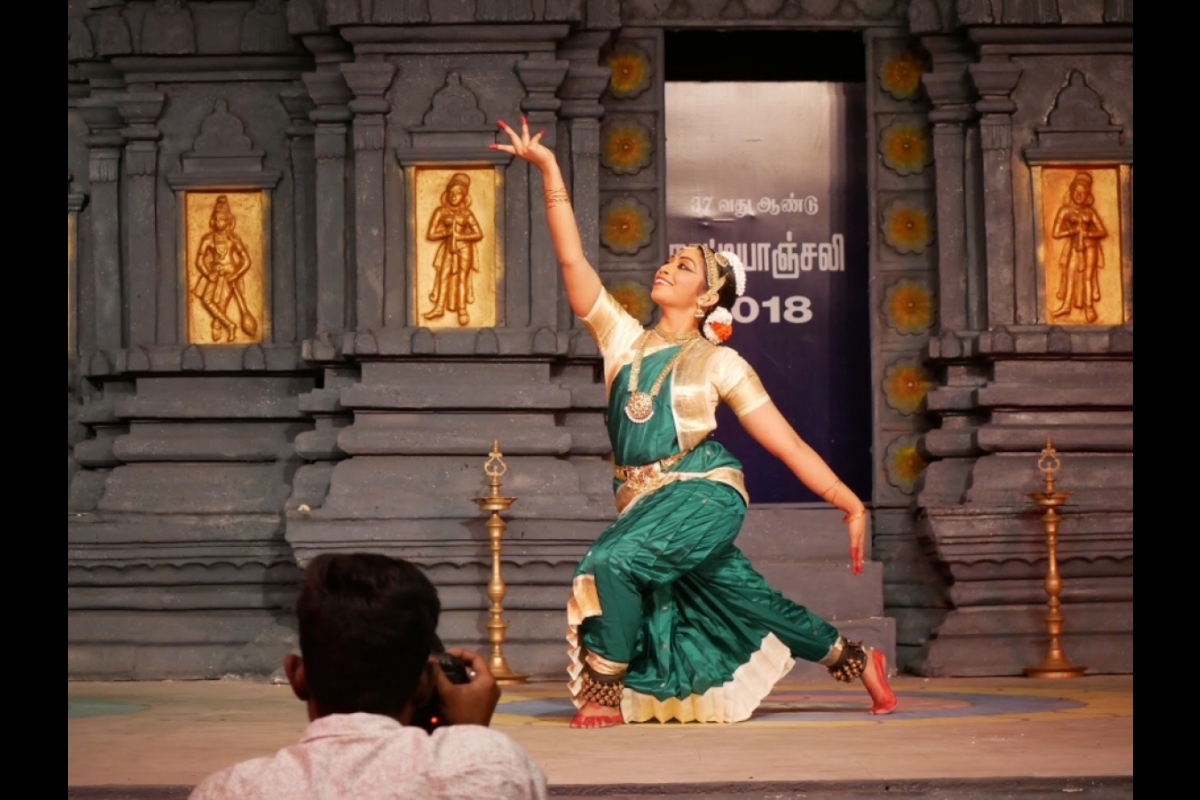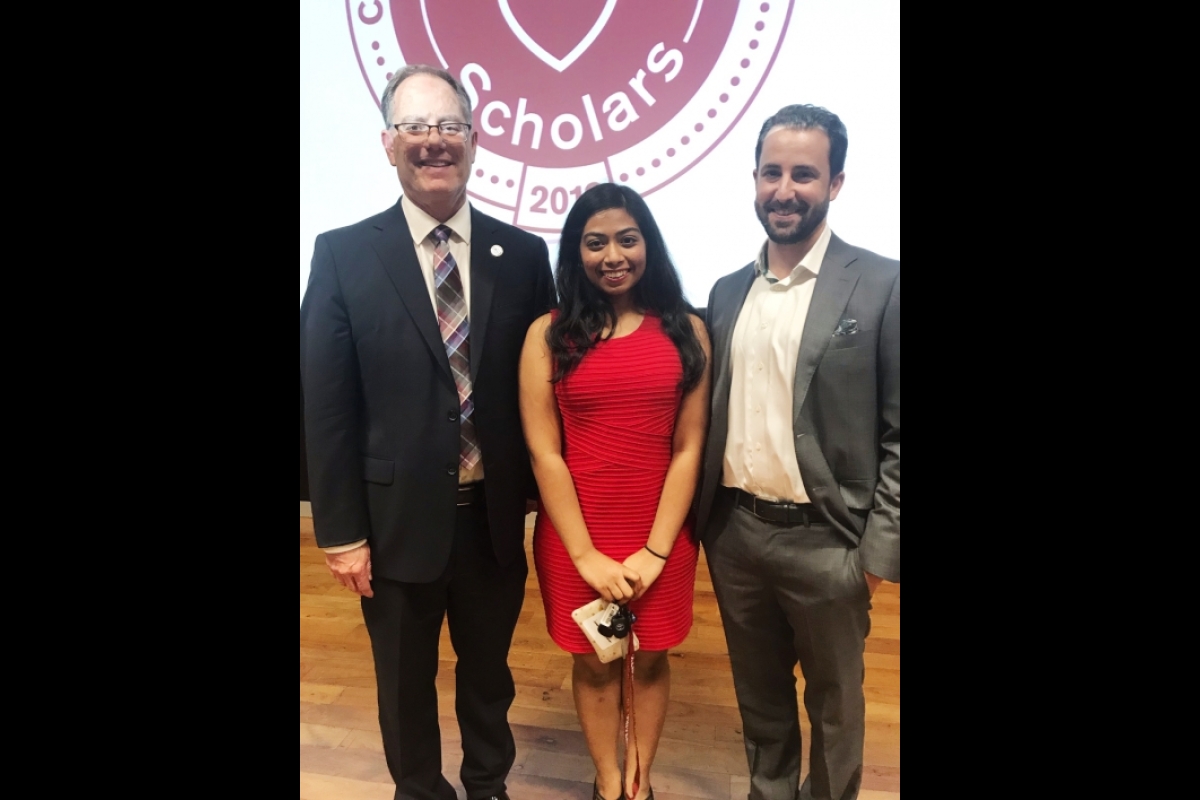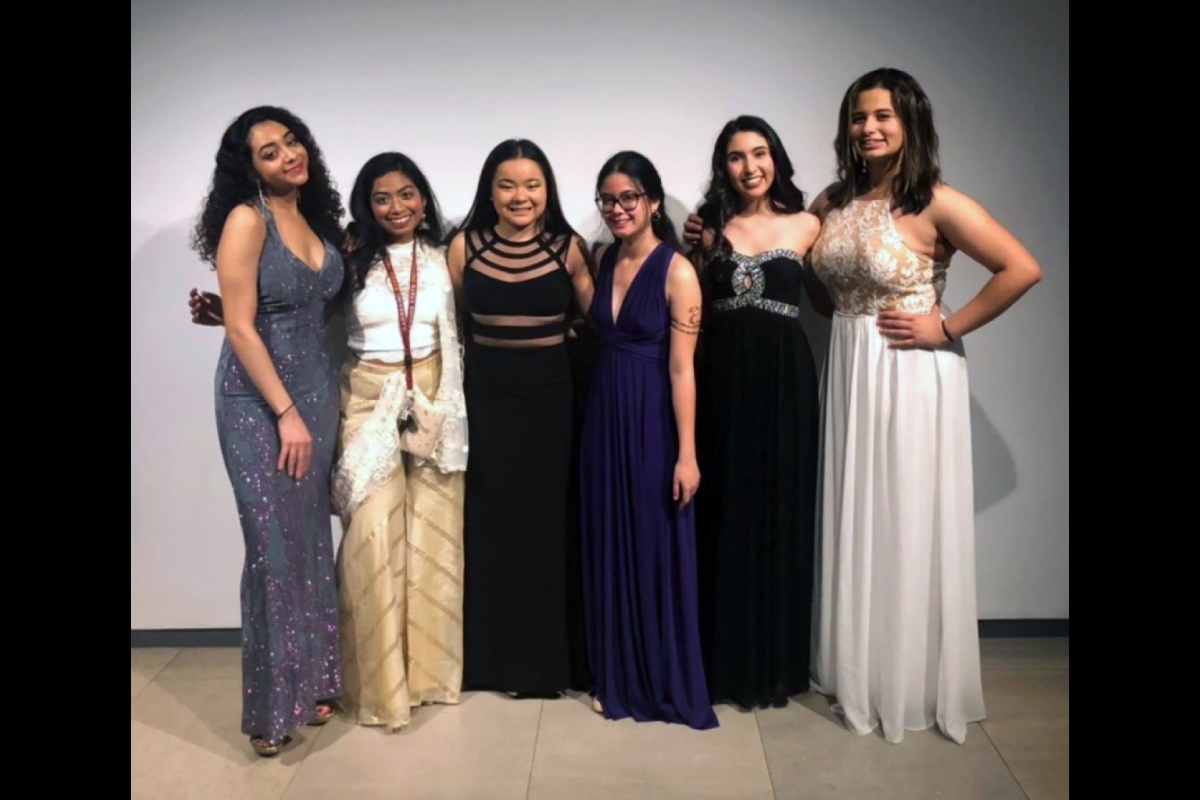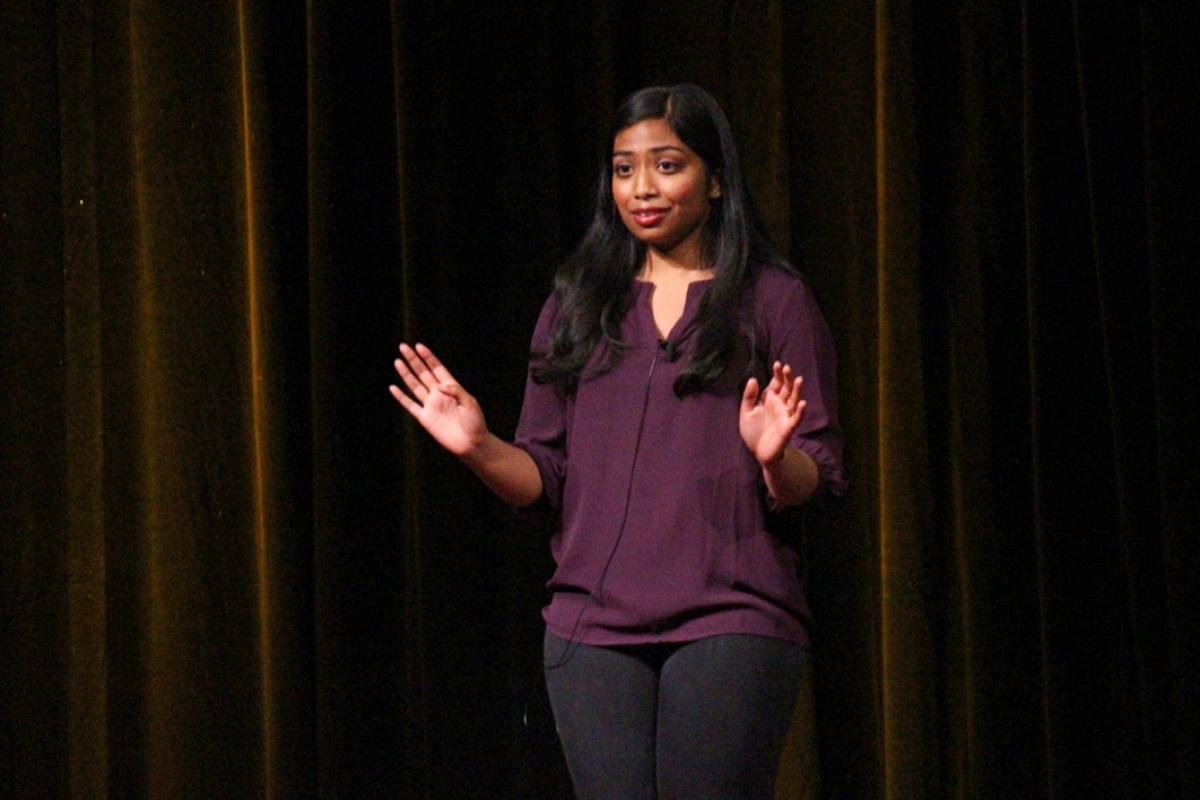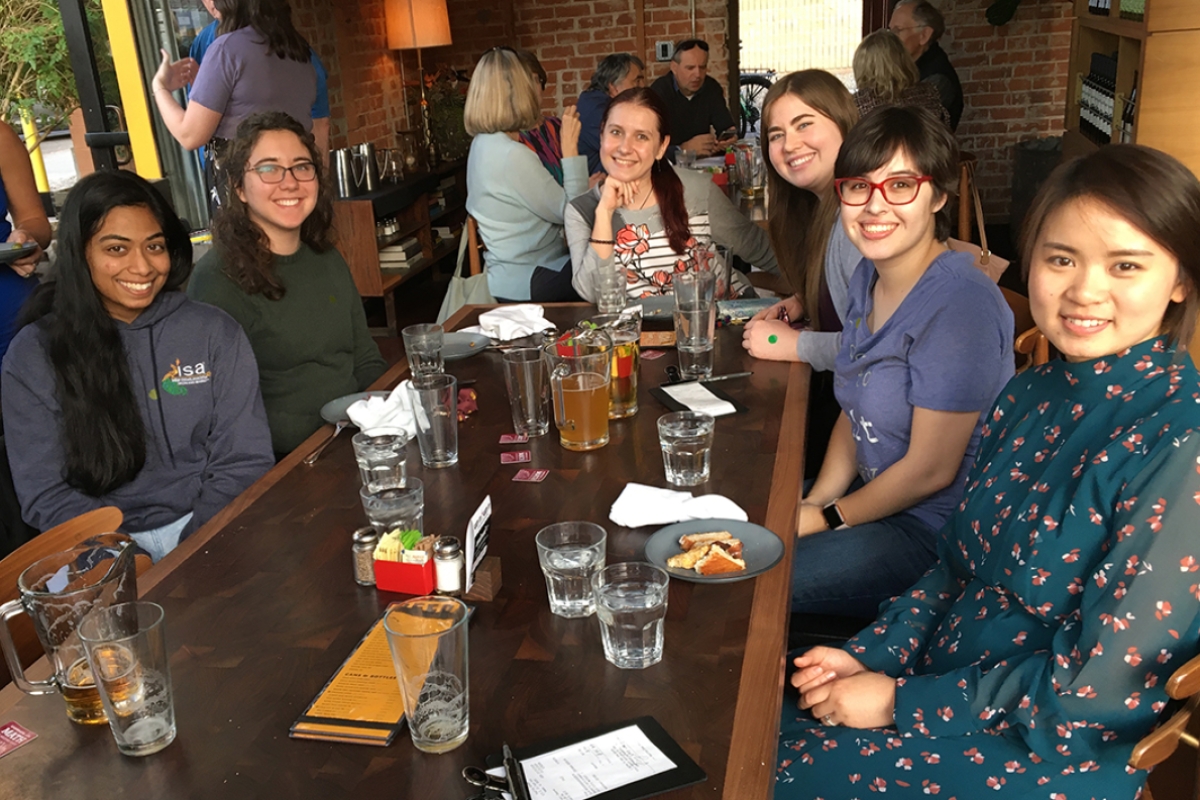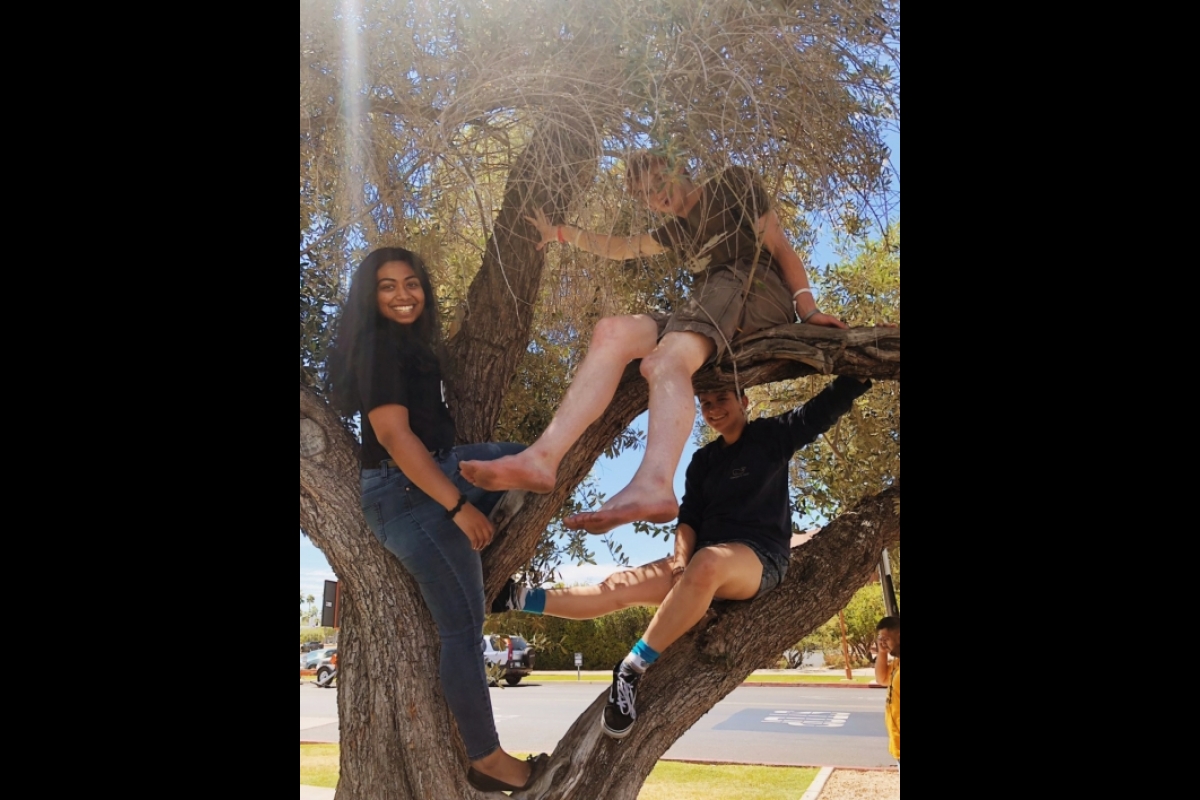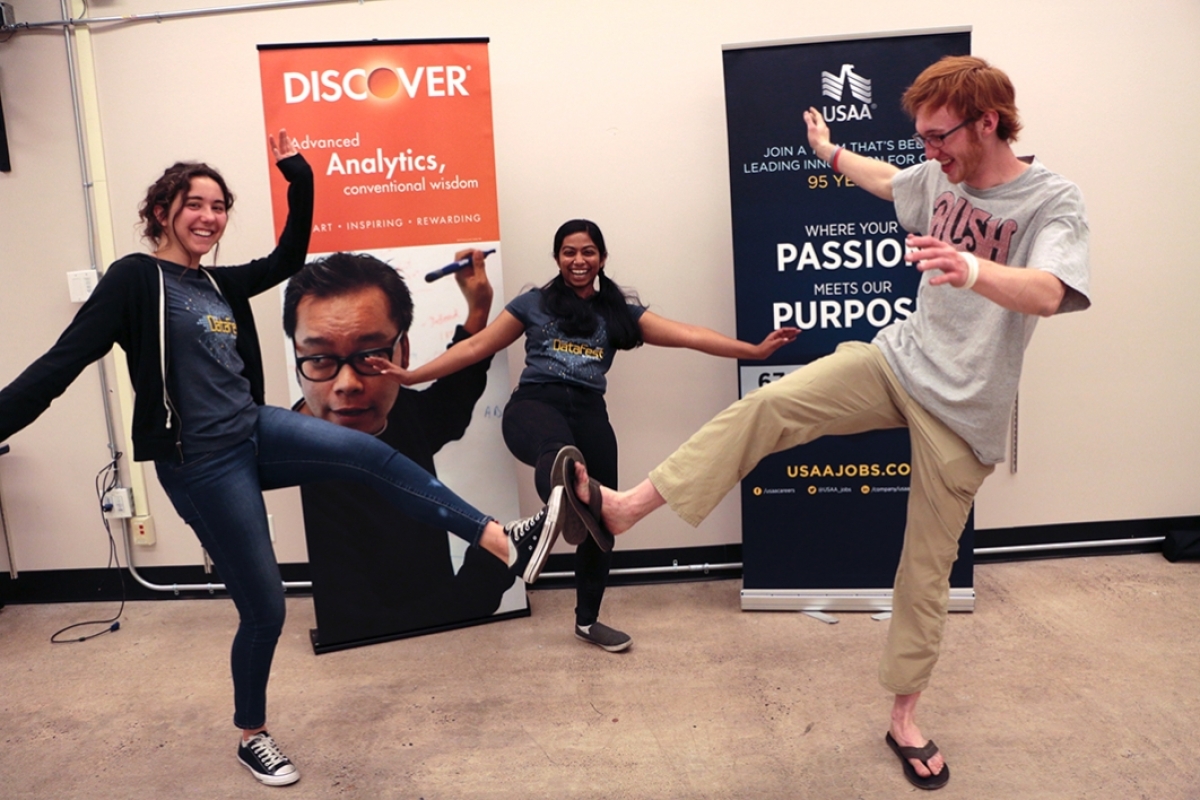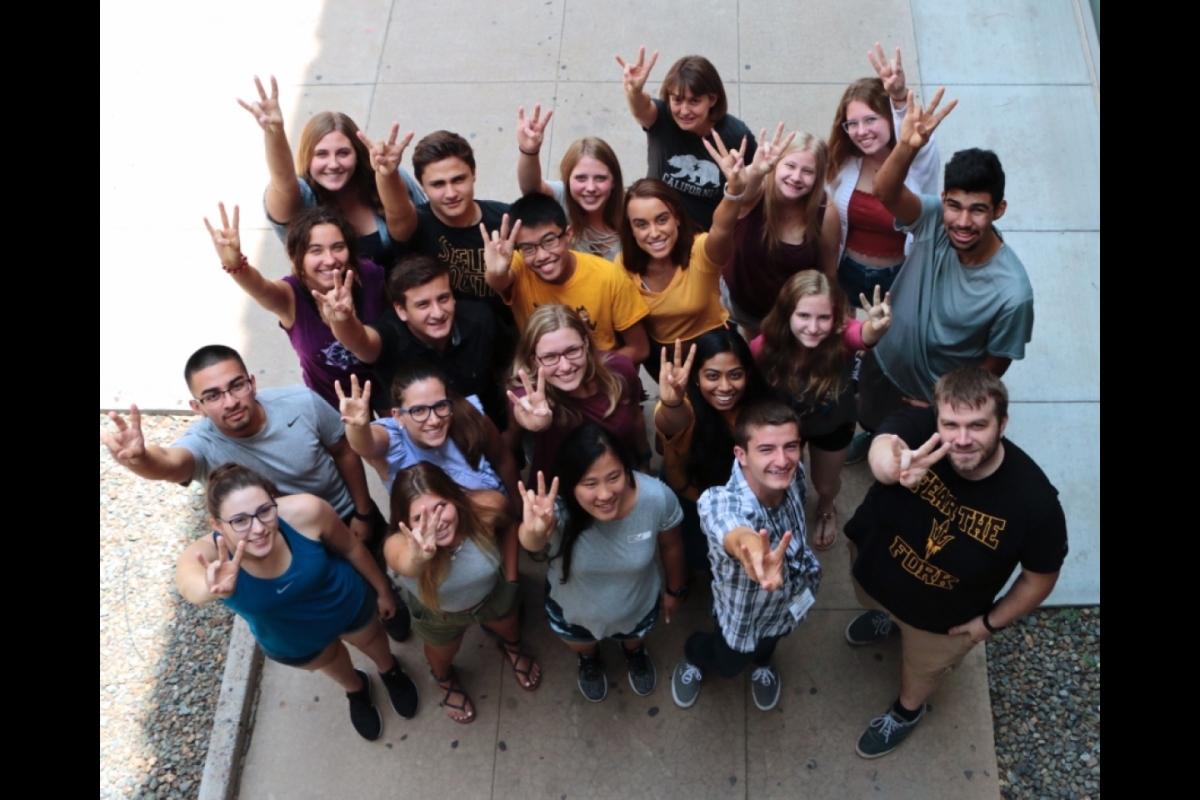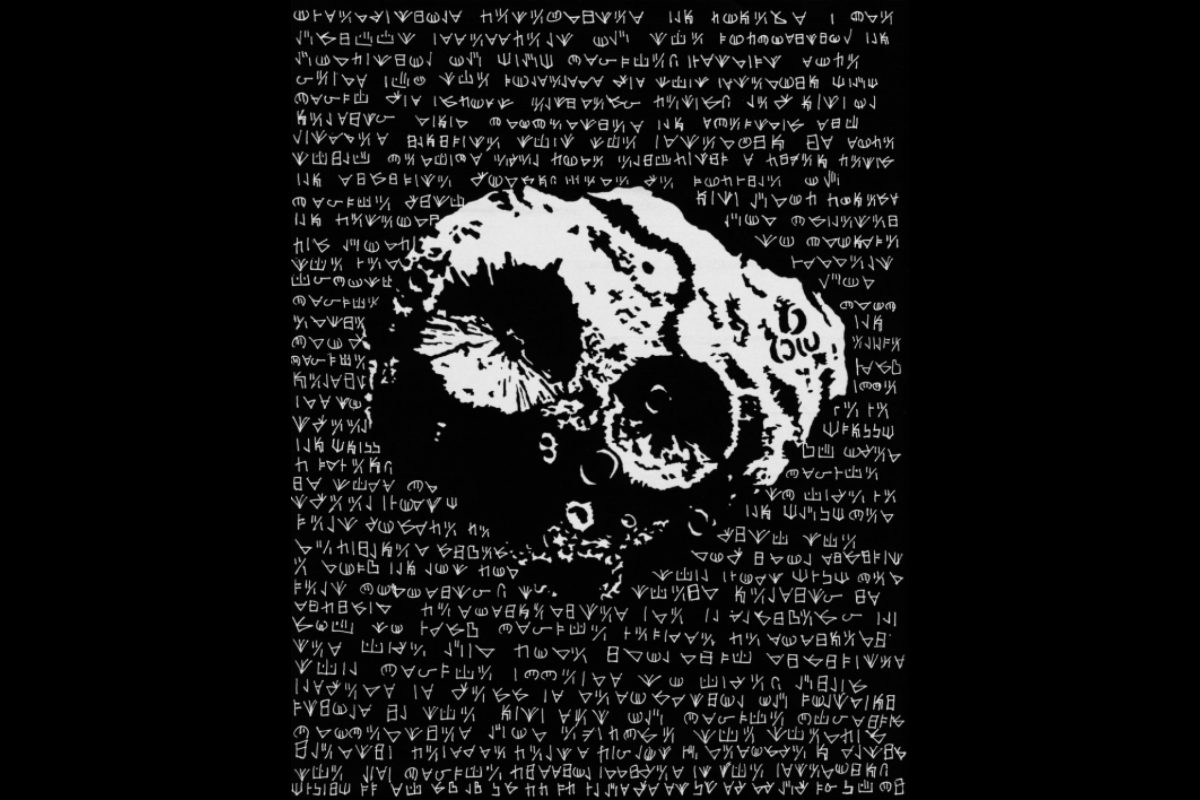Dean's Medalist enjoys both the logical and creative aspects of mathematics, dance and languages
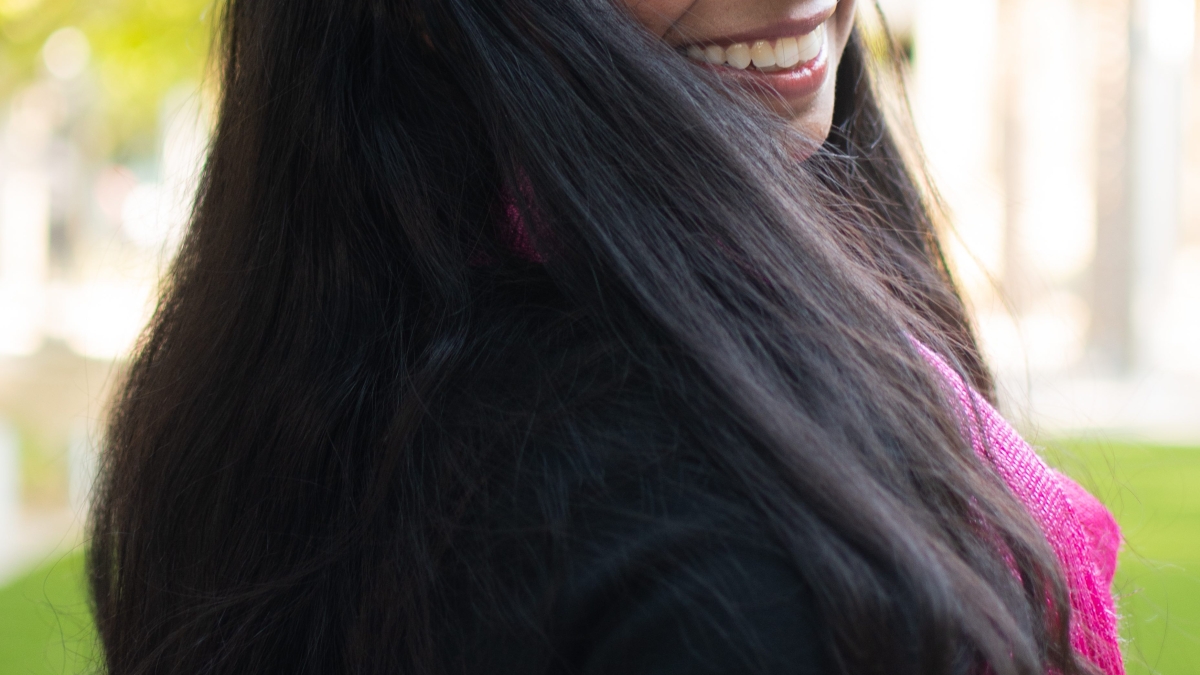
Janani Lakshmanan is the Dean's Medalist for the School of Mathematical and Statistical Sciences.
Editor's note: This story is part of a series of profiles of notable fall 2020 graduates.
Swarnalakshmi Janani Lakshmanan is the fall 2020 Dean’s Medalist for the School of Mathematical and Statistical Sciences.
She will graduate from Arizona State University this month with a Bachelor of Science degree in mathematics. She has an outstanding cumulative GPA of 4.14.
Lakshmanan serves as undergraduate ambassador of the Association for Women in Mathematics (AWM) Student Chapter, and co-hosted several of the chapter’s activities. She was the 2020 recipient of the Ioana Elise Hociota!!! Memorial Mathematics Scholarship. She participated in NASA’s Psyche Inspired internship program, and gave an inspirational Ignite@ASU talk to the general public about the beauty and creativity of mathematical discovery, which drew parallels between math and art. She plans to continue her studies toward a PhD in mathematics.
Lakshmanan was born in Chennai, Tamil Nadu, in the south of India. When she turned 1, her family moved to Houston, Texas, where she attended elementary school. At age 9, her family moved to India for two years.
"When I lived in Houston, I was the only Indian American person in my class, in my school. I was definitely 'the Indian girl,'" said Lakshmanan. "Then when we went to India, I was 'the American girl' because I spoke slightly differently. I talked about different things."
Being labeled was frustrating for Lakshmanan, as she saw herself as a mix of both cultures. "My parents taught me to value my own culture, traditions and religion, especially. These experiences taught me to be a lot less quick to label people and assess them more holistically than I felt I had been judged by my peers."
Moving around a lot as a child, Lakshmanan discovered major differences amongst education systems. "In India, the schools are much more competitive and you're directly competing against your peers. Whereas in the U.S., it's much more creative and focused on uplifting every student. And it's much more collaborative."
Lakshmanan describes herself as a "quiet social person" or a "loud introvert." She enjoys working in a collaborative environment.
When she started sixth grade, her family moved back to the U.S. and settled in Chandler, Arizona. At the suggestion of a middle school counselor, she signed up for softball and Math Club. Softball didn't stick, but she stayed with Math Club all the way through high school.
She started high school at Arizona College Prep thinking she wanted to be an interpreter. She loved learning languages and they had always been a part of her identity. Her mother tongue is Tamil, one of the longest-surviving classical languages in the world. She also speaks fluent English, taught to her by her mother. She signed up for the only languages offered at her high school, Mandarin Chinese and Spanish, while also studying others on her own, including French, Latin, Finnish, Esperanto, Sanskrit, and Lojban.
Within the Indian American community, there has always been a bit of a cultural expectation to consider medicine as a career. She grew more interested in her science classes and set her sights on neuroscience. After her sophomore year, she participated in the summer quarter at Stanford University where she took some classes, studied neuroscience and did rather well.
She took a lot of things away from that summer experience, especially liking her new sense of independence. She also figured out that she did not want to pursue neuroscience. To her, it was a process of elimination. Interpretation was fascinating, but doing it meant she would have to focus on one single language, rather than study all the different ones that she could. Being an interpreter was also marked off the list.
All along this path, Lakshmanan began realizing that math had somehow become a constant for her. In her junior year, she found herself considering math much more seriously because she enjoyed her math classes, especially proofs, and this way of thinking about mathematics that had been hinted at, but never really shown. She spent a lot of time with peers in Math Club, who were much better at math than she was.
"I chose math because I was bad at it," said Lakshmanan half-jokingly. "That's why I want to keep doing it. It's because I know it's not going to be something that I could ever get bored doing. There is always something to love about it."
"And when you 'get' math, that rush of realization that you do understand something, there is no high like it."
Lakshmanan's mother was an English professor and her father worked in IT. "I literally am both halves of my parents. I'm a mathematician, but I'm also a dancer and a writer, and I enjoy doing all of those things," she said. "I think math is intrinsically more creative and the humanities are intrinsically more logical than a lot of people give either of them credit for."
Lakshmanan moved to Georgia to attend Oxford College of Emory University as a National Merit Scholar. She was part of a group of 900 really motivated kids who were all trying to stand out in some way. As a result, Lakshmanan found herself blending into the crowd. She decided to take a gap semester and figure things out.
She went to India for a month and was given the opportunity to perform at the Natyanjali Festival of Chidambaram, a prestigious classical dance festival.
She was also taking several online classes, studying things she found interesting, but she hated not being in school. "I need school to feel like myself," she said.
When she moved back to Arizona to attend Arizona State University in the fall, she was definitely motivated. She was invited to be part of The College's Early Start Program, hosted in the School of Mathematical and Statistical Sciences. Early Start is a free program that brings a small cohort of about 25 students to campus two weeks before the semester begins and fully immerses them in Sun Devil life, working with faculty and peer mentors.
"I really credit the Early Start program for being the reason that I had a remotely successful career here at ASU," said Lakshmanan.
She got to explore the study of mathematics at ASU including the courses, STEM careers and research opportunities available to math majors. It was at Early Start that she first met principal lecturer Rochus Boerner.
"He told it like it was. On the first day of Early Start, he sat down and said, 'So you want to be a mathematician? Here's what that looks like,'" said Lakshmanan.
Boerner explained what you can do with a math degree, and took students through both the applied and pure math side of things, including pursuing academia. "I always knew that academia was what I wanted," added Lakshmanan. "Because like I said, I don't know what to do if I don't have school."
Boerner also introduced some fascinating concepts in mathematics. "We walked through proving that the number one exists," said Lakshmanan. "And that the number two exists." They learned about the Peano axioms, fallacies and common mistakes in math — what to look for and what pitfalls to avoid.
They talked about mathematical thinking as well, which was something she had only had glimpses of previously. "I really enjoyed that, just studying the way mathematics could be thought about," said Lakshmanan. "Looking at that reinforced to me that this was something that I wanted to do."
Boerner became an influential mentor. Lakshmanan has worked as his instructional aide and grader for MAT 243 and 300 since her second semester.
"Janani is a highly mathematically talented student, but that by itself is not particularly unusual among math majors. What really impresses me is her maturity of understanding of and interest in all components of the mathematical enterprise, from pedagogy and outreach to applications and research," said Boerner. "I believe she has the potential to be an outstanding teacher and researcher."
President's Professor Matthias Kawski remembers Lakshmanan being surprised walking into his classroom on the first day of fall semester, seeing so many women in the all too often male-dominated upper division analysis classes. She became an organizer and leader of study groups, making everyone feel like they were part of one team.
"The women took 8 out of 12 A's in a class that started with 34 students," said Kawksi. "We had so much fun."
"Janani bears major responsibility for making that Advanced Calculus my best class ever in 33 years teaching at ASU," said Kawski, who is advising her Barrett honors thesis on Koszul duality of operads.
Although Lakshmanan admits that she could check the boxes next to a few of the underrepresented groups in mathematics, such as women, racial or ethnic minorities, first-generation college students, LGBTQ+, persons with disabilities, etc., she does not identify with labels in that way.
"Even if I do identify as part of those minority groups. I don't know if they have impacted my undergraduate experience — except in that they give me empathy. My undergraduate experience has only cemented this idea that I want to be part of academia," she said.
"I think academia at its best is a place where people of all identities should be able to succeed. Especially being a part of an organization like AWM has shown me that mathematics is for everyone."
We asked Lakshmanan to share a bit more about her journey as a Sun Devil.
Question: Why did you choose ASU?
Answer: When I was looking to transfer from Emory, ASU was the only choice I considered — being from Chandler, it was right by home and an easy choice.
Q: What do you like most about mathematics (and your area of concentration)?
A: Pure math claims to be abstract, or removed from the prosaic inconsistencies of life, but its acme is the diversity of thought of eons and acres of brilliant thinkers. Some of these thinkers stood in the face of incredible hardship in order to find their way to this human understanding of truth.
Q: Which professor taught you the most important lesson while at ASU?
A: Dr. Matthias Kawski — he told me to not be afraid of asking for help. This doesn’t just mean academic help, but also in personal life situations.
Q: What is the best piece of advice you would give to those still in school?
A: Try to think of professors as people, as opposed to figures of authority. Because I promise, what students are thinking is, "This person is looking at me and seeing a number." But I don't think any of my professors have a good enough memory to actually look at me and know whether or not I turned in a homework assignment that week. That's not what they're seeing when they look at you. They're seeing the person who's engaging with them and asking questions, or presenting an idea of their own.
I have never really been a super focused academic student. I would always go off on side tangents, and that's helped me because it means that I have a lot of professors that I've just walked up to and said, "Hi. Can I work with you on a thing that I have an idea for?" And they often respond in a positive way. That is a thing that you can do because professors, presumably, have some interest in learning as well as teaching — and they have just as much to learn from students as students do from them.
I think that's how you see a professor as a person, is realize that you're important to them just like they're important to you.
Q: What was your favorite spot on campus, whether for studying, meeting friends or just thinking about life?
A: The roof of PSF is always lovely. Otherwise, I enjoy climbing the olive trees behind Goldwater.
Q: What do you like to do in your spare time for fun?
A: I love dancing — I’ve been an Indian classical (Bharatanatyam) dancer since I was 4 years old, and I’ve also recently taken up Argentine tango. I also write poetry and enjoy baking.
Q: If someone gave you $40 million to solve one problem on our planet, what would you tackle?
A: Education inequality is the problem that, once solved, can solve all the others, I think.
More Science and technology

ASU receives 3 awards for research critical to national security
Three researchers in the Ira A. Fulton Schools of Engineering at Arizona State University have received grant awards under the …
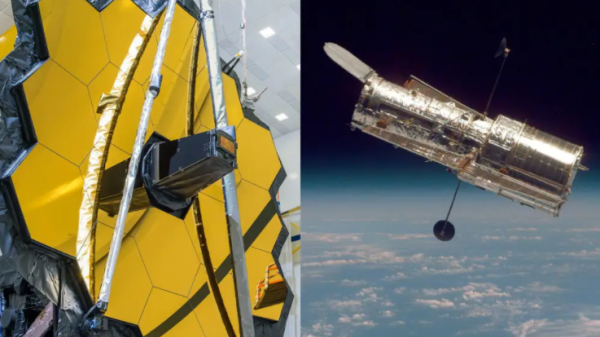
Celebrating 34 years of space discovery with NASA
This year, NASA's Hubble Space Telescope (HST) is celebrating its 34th anniversary of the world's first space-based optical…
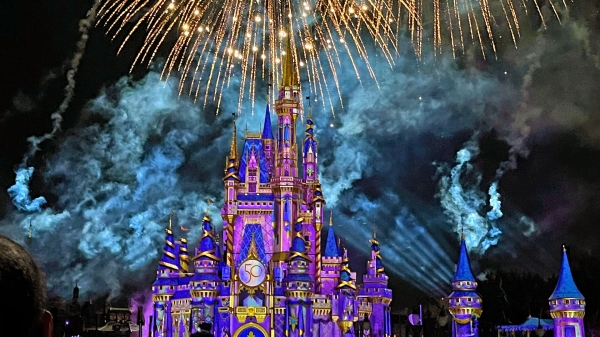
Making magic happen: Engineering and designing theme parks
The themed entertainment industry is widespread and diverse, encompassing everything from theme parks to aquariums, zoos, water…
